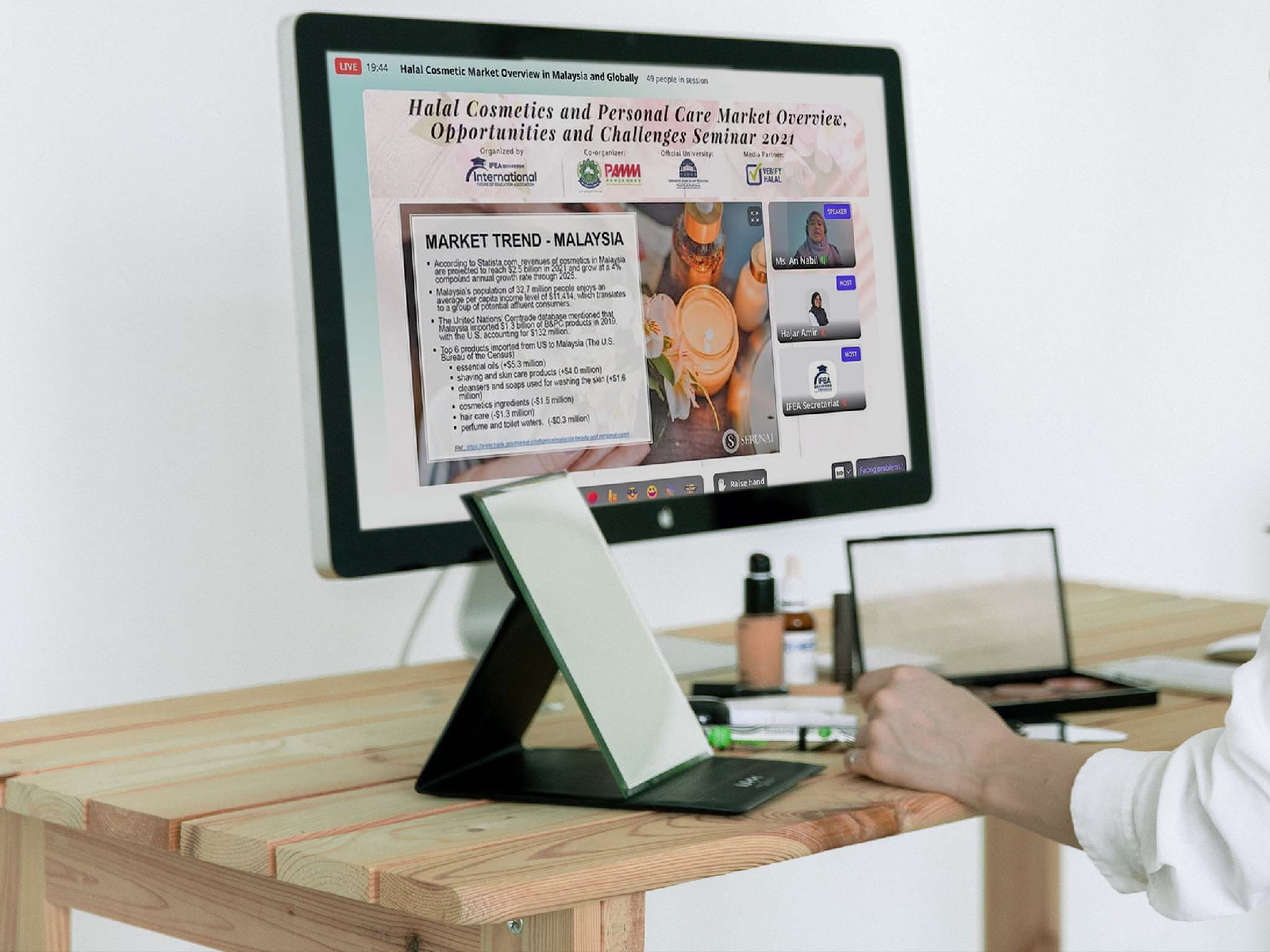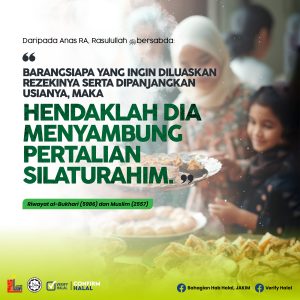With a market size valued at US$ 29.13 Billion in 2020, Halal cosmetics is no longer seen as a trend, but a key component of people’s lifestyles as younger generations are emerging as a conscious consumers towards Halal. Their purchasing power has merely amplified the demand for a developing Halal market.
As a result, companies are being pushed to diversify their product offerings. They are now more than ever required to comply with Halal certification requirements, which are becoming increasingly necessary to export to certain countries — so a lot more labels are being disseminated, according to Ms An Nabil, Senior Halal and Regulatory Executive of Serunai Commerce at the 3rd Halal Industry Conference 2021, organised by International Future of Education Association (IFEA) in December 2021.
“Consumer awareness and demand for Halal cosmetics and personal care products is stronger now than ever,” she continued. People are paying closer attention to the contents in the items they use. This is highly evident in the latest statistics generated in a study of the Global Islamic Economy.”
According to the most current State of the Global Islamic Economy (SGIE) Report in 2020/21, the entire value of cosmetics imports to OIC nations was valued USD 16 billion, accounting for a significant percentage of the worldwide cosmetics industry.
Indonesia, Turkey, and Malaysia are included in the top five markets with the highest Muslim consumer cosmetics expenditure, having a total market size of USD 22 Billion.
However, because the cosmetics industry is dominated by non-Halal cosmetics companies, whose production techniques may not match Halal science’s requirements, the need for Halal cosmetics remains unmet. The utilisation of Halal science in cosmetics manufacturing is still minimal. Furthermore, there is a global scarcity of guiding guidelines for the design and evaluation of Halal cosmetics in their entirety.
As a result, it is no surprise that leading consumer markets recognise the importance of participating in a Halal awareness campaign.
For Muslims, the act of consciously choosing Halal items is a virtue and a source of good actions. Halal products can benefit even non-Muslims. From the production stage through the packing of the material, these items conform to the highest levels of cleanliness and are created using Halal components. It is undeniable that the Halal cosmetics and skincare sector has a bright and exciting future, whether in Malaysia or globally.
Not only Halal, adherence to hygiene standards and quality standards is also important in Halal industry. You can also consult our Halal certification experts and standards at the Halal Center of Excellence or visit https://serunai-test-7ab8bd.ingress-earth.ewp.live/Halal-coe/













Like (0)